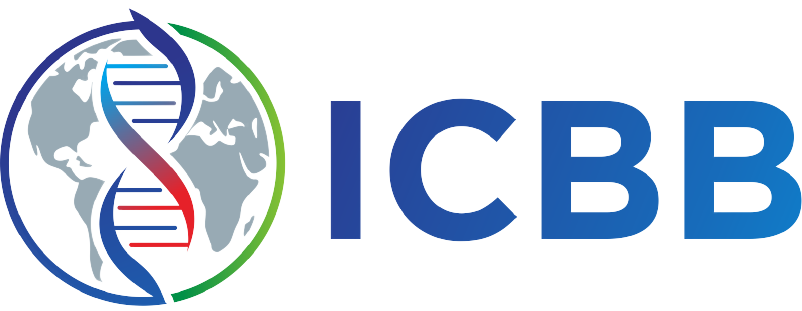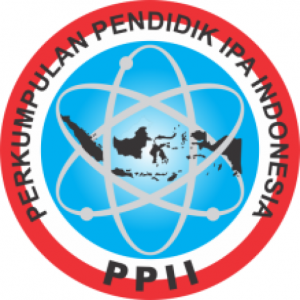Literature Review: Genetic Engineering in Tuberculosis Vaccine Production
Authors
Dhea Rizma Demula Putri , Baiq Putri Maharani Bine Inggit , Lalu Mas’ud Rahmatullah , Virga Fathiya Dalila , Weny Syafitri Utari , Anggit ListyacahyaniDOI:
10.29303/jbt.v24i1b.8233Published:
2024-12-29Issue:
Vol. 24 No. 1b (2024): Special IssueKeywords:
Biotechnology, genetic engineering, tuberculosis, vaccine.Articles
Downloads
How to Cite
Downloads
Metrics
Abstract
The tuberculosis (TB) vaccine contains a weakened form of the TB-causing agent. Currently, much research has focused on developing an effective and safe TB vaccine through genetic engineering. This review aims to analyze genetic engineering techniques in the production of tuberculosis (TB) vaccines. The analysis was conducted by gathering research data from various studies published between 2014-2024, available in PubMed, ScienceDirect, and Google Scholar, using relevant keywords. Based on the literature review, several innovative methods in genetic engineering were identified, such as Polymerase Chain Reaction (PCR), Enzyme-Linked Immunosorbent Assay (ELISA), in silico methods, multi-epitope vaccine development, and protein fusion-based vaccine development. Although there are challenges related to vaccine stability and clinical safety testing, innovations in genetic engineering technology hold the promise of significant progress in developing a more effective and durable TB vaccine. Among these methods, protein fusion-based and multi-epitope vaccines show the most promising potential in terms of effectiveness and long-lasting immune response.
References
Albutti, A. (2021). An integrated computational framework to design a multi-epitopes vaccine against Mycobacterium tuberculosis. Scientific Reports, 11(1), 1–18. https://doi.org/10.1038/s41598-021-01283-6
Andongma, B. T., Huang, Y., Chen, F., Tang, Q., Yang, M., Chou, S. H., Li, X., & He, J. (2023). In silico design of a promiscuous chimeric multi-epitope vaccine against Mycobacterium tuberculosis. Computational and structural biotechnology journal, 21, 991–1004. https://doi.org/10.1016/j.csbj.2023.01.019
Bibi, S., Ullah, I., Zhu, B., Adnan, M., Liaqat, R., Kong, W., & Niu, S. (2021). In silico analysis of epitope-based vaccine candidate against tuberculosis using reverse vaccinology. Scientific Reports, 11. https://doi.org/10.1038/s41598-020-80899-6.
Broset, E., Calvet Seral, J., Arnal, C., Uranga, S., Kanno, A. I., Leite, L. C. C., Martín, C., & Gonzalo-Asensio, J. (2021). Engineering a new vaccine platform for heterologous antigen delivery in live-attenuated Mycobacterium tuberculosis. Computational and structural biotechnology journal, 19, 4273–4283. https://doi.org/10.1016/j.csbj.2021.07.035
Deshmukh, S., Magcalas, F., Kalbfleisch, K., Carpick, B., & Kirkitadze, M. (2018). Tuberculosis vaccine candidate: Characterization of H4‐IC31 formulation and H4 antigen conformation. Journal of Pharmaceutical and Biomedical Analysis, 157, 235–243. https://doi.org/10.1016/j.jpba.2018.05.048.
García-Basteiro, A., White, R., Tait, D., Schmidt, A., Rangaka, M., Quaife, M., Nemes, E., Mogg, R., Hill, P., Harris, R., Hanekom, W., Frick, M., Fiore-Gartland, A., Evans, T., Dagnew, A., Churchyard, G., Cobelens, F., Behr, M., & Hatherill, M. (2022). End-point definition and trial design to advance tuberculosis vaccine development. European Respiratory Review, 31. https://doi.org/10.1183/16000617.0044-2022.
Geldenhuys, H., Mearns, H., Miles, D., Tameris, M., Hokey, D., Shi, Z., Bennett, S., Andersen, P., Kromann, I., Hoff, S., Hanekom, W., Mahomed, H., Hatherill, M., Scriba, T., Rooyen, M., McClain, J., Ryall, R., & Bruyn, G. (2015). The tuberculosis vaccine H4:IC31 is safe and induces a persistent polyfunctional CD4 T cell response in South African adults: A randomized controlled trial.. Vaccine, 33 30, 3592-9. https://doi.org/10.1016/j.vaccine.2015.05.036.
Ghandadi, M. (2022). An Immunoinformatic Strategy to Develop New Mycobacterium tuberculosis Multi-epitope Vaccine. International Journal of Peptide Research and Therapeutics, 28(3), 1–14. https://doi.org/10.1007/s10989-022-10406-0
Jiang, F., Han, Y., Liu, Y., Xue, Y., Cheng, P., Xiao, L., & Gong, W. (2023). A comprehensive approach to developing a multi-epitope vaccine against Mycobacterium tuberculosis: from in silico design to in vitro immunization evaluation. Frontiers in Immunology, 14. https://doi.org/10.3389/fimmu.2023.1280299.
Koller, M. (2018). Biodegradable and Biocompatible Polyhydroxy-alkanoates (PHA): Auspicious Microbial Macromolecules for Pharmaceutical and Therapeutic Applications. Molecules : A Journal of Synthetic Chemistry and Natural Product Chemistry, 23. https://doi.org/10.3390/molecules23020362.
Lee, J., Parlane, N., Rehm, B., Buddle, B., & Heiser, A. (2017). Engineering Mycobacteria for the Production of Self-Assembling Biopolyesters Displaying Mycobacterial Antigens for Use as a Tuberculosis Vaccine. Applied and Environmental Microbiology, 83. https://doi.org/10.1128/AEM.02289-16.
Li, Z., Yang, J., & Loh, X. (2016). Polyhydroxyalkanoates: opening doors for a sustainable future. Npg Asia Materials, 8. https://doi.org/10.1038/AM.2016.48.
Meeren, O., Hatherill, M., Nduba, V., Wilkinson, R., Muyoyeta, M., Brakel, E., Ayles, H., Henostroza, G., Thienemann, F., Scriba, T., Diacon, A., Blatner, G., Demoitié, M., Tameris, M., Malahleha, M., Innes, J., Hellström, E., Martinson, N., Singh, T., Akité, E., Azam, A., Bollaerts, A., Ginsberg, A., Evans, T., Gillard, P., & Tait, D. (2018). Phase 2b placebo-controlled trial of M72/AS01E candidate vaccine to prevent active tuberculosis in adults. The New England Journal of Medicine, 379, 1621 - 1634. https://doi.org/10.1056/NEJMoa1803484.
Mubarak, A. S., Ameen, Z. S., Hassan, A. S., & Ozsahin, D. U. (2024). Enhancing tuberculosis vaccine development: a deconvolution neural network approach for multi-epitope prediction. Scientific Reports, 14(1), 1–21. https://doi.org/10.1038/s41598-024-59291-1
Nayak, S., Sethi, G., & Ramadas, K. (2023). Design of multi-epitope based vaccine against Mycobacterium tuberculosis: a subtractive proteomics and reverse vaccinology based immunoinformatics approach. Journal of Biomolecular Structure and Dynamics, 41, 14116 - 14134. https://doi.org/10.1080/07391102.2023.2178511.
Norrby, M., Vesikari, T., Lindqvist, L., Maeurer, M., Ahmed, R., Mahdavifar, S., Bennett, S., McClain, J., Shepherd, B., Li, D., Hokey, D., Kromann, I., Hoff, S., Andersen, P., Visser, A., Joosten, S., Ottenhoff, T., Andersson, J., & Brighenti, S. (2017). Safety and immunogenicity of the novel H4:IC31 tuberculosis vaccine candidate in BCG-vaccinated adults: Two phase I dose escalation trials.. Vaccine, 35 12, 1652-1661. https://doi.org/10.1016/j.vaccine.2017.01.055.
Pillay, K., Chiliza, T. E., Senzani, S., Pillay, B., & Pillay, M. (2024). In silico design of Mycobacterium tuberculosis multi-epitope adhesin protein vaccines. Heliyon, 10(18).
Rawal, K., Sinha, R., Abbasi, B., Chaudhary, A., Nath, S., Kumari, P., Preeti, P., Saraf, D., Singh, S., Mishra, K., Gupta, P., Mishra, A., Sharma, T., Gupta, S., Singh, P., Sood, S., Subramani, P., Dubey, A., Strych, U., Hotez, P., & Bottazzi, M. (2021). Identification of vaccine targets in pathogens and design of a vaccine using computational approaches. Scientific Reports, 11. https://doi.org/10.1038/s41598-021-96863-x.
Saubí, N., Gea-Mallorquí, E., Ferrer, P., Hurtado, C., Sánchez-Úbeda, S., Eto, Y., Gatell, J., Hanke, T., & Joseph, J. (2014). Engineering new mycobacterial vaccine design for HIV–TB pediatric vaccine vectored by lysine auxotroph of BCG. Molecular Therapy. Methods & Clinical Development, 1. https://doi.org/10.1038/mtm.2014.17.
Sharma, R., Rajput, V., Jamal, S., Grover, A., & Grover, S. (2021). An immunoinformatics approach to design a multi-epitope vaccine against Mycobacterium tuberculosis exploiting secreted exosome proteins. Scientific Reports, 11. https://doi.org/10.1038/s41598-021-93266-w.
Tait, D., Hatherill, M., Meeren, O., Ginsberg, A., Brakel, E., Salaun, B., Scriba, T., Akité, E., Ayles, H., Bollaerts, A., Demoitié, M., Diacon, A., Evans, T., Gillard, P., Hellström, E., Innes, J., Lempicki, M., Malahleha, M., Martinson, N., Vela, D., Muyoyeta, M., Nduba, V., Pascal, T., Tameris, M., Thienemann, F., Wilkinson, R., & Roman, F. (2019). Final Analysis of a Trial of M72/AS01E Vaccine to Prevent Tuberculosis.. The New England journal of medicine. https://doi.org/10.1056/NEJMoa1909953.
Xiao, T., Liu, H., Li, X., Huang, M., Li, G., Li, N., Yan, Y., Luo, Q., Wang, X., Li, M., & Wan, K. (2019). Immunological Evaluation of a Novel Mycobacterium tuberculosis Antigen Rv0674.. Biomedical and environmental sciences : BES, 32 6, 427-437. https://doi.org/10.3967/bes2019.056.
Yang, Y., Kulka, K., Montelaro, R., Reinhart, T., Sissons, J., Aderem, A., & Ojha, A. (2014). A hydrolase of trehalose dimycolate induces nutrient influx and stress sensitivity to balance intracellular growth of Mycobacterium tuberculosis.. Cell host & microbe, 15 2, 153-63.
License
Copyright (c) 2024 Dhea Rizma Demula Putri, Baiq Putri Maharani Bine Inggit, Lalu Mas’ud Rahmatullah, Virga Fathiya Dalila, Weny Syafitri Utari, Anggit Listyacahyani

This work is licensed under a Creative Commons Attribution 4.0 International License.

Jurnal Biologi Tropis is licensed under a Creative Commons Attribution 4.0 International License.
The copyright of the received article shall be assigned to the author as the owner of the paper. The intended copyright includes the right to publish the article in various forms (including reprints). The journal maintains the publishing rights to the published articles.
Authors are permitted to disseminate published articles by sharing the link/DOI of the article at the journal. Authors are allowed to use their articles for any legal purposes deemed necessary without written permission from the journal with an acknowledgment of initial publication to this journal.


























